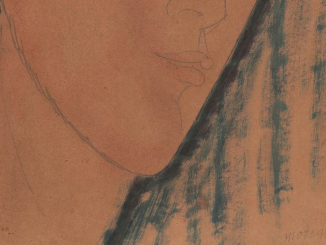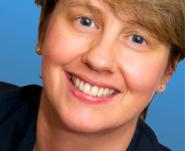
As founding editor of Cancer World, Kathy Redmond set out to open up debate on the future of cancer care in Europe. She started a conversation that a full range of professionals and patient advocates have joined. We are still talking.
“Welcome to our world.” When editor Kathy Redmond chose these words to announce the launch of Cancer World, the European School of Oncology’s magazine, she was not just referring to its title. She was inviting readers to look beyond the boundaries of their own profession, discipline, specialism and status to acknowledge all the people and issues that affect quality of care for patients. She was challenging them to step out of their silos to talk with one another, and she saw the pages of the magazine as a meeting place to work together to achieve more and better.
This was September 2004. The media and journals were full of the promise of the new ‘personalised’ approach to treatment, using targeted drugs. The search was on for genomic signatures and biomarkers. Treatments were emerging for diseases such as kidney cancer that had seen little progress in survival for decades. There was talk of turning cancer into a chronic condition. A few months later, the publication of two trials of adjuvant use of Herceptin would be greeted with the words, “revolutionary… stunning… and maybe even a cure”.
What was missing was coverage of the care received by the majority of patients across Europe who were not in trials or being treated at specialist centres. Stories of patients being failed by services that entrusted their care to professionals who were not up to the job, working in settings that were not fit for purpose. Stories of health professionals, administrators, policy makers and patient advocates, working to overcome the challenges of inertia, fragmentation and vested interests to improve the way care was planned and delivered. And there was little debate about why change is needed and how best to achieve it.
This was the gap the new magazine was designed to fill.
“It was very important for Cancer World to come into being,” says Redmond, “because it provided a platform for discussion and debate on key issues impacting on cancer, which did not previously exist.
“Cancer World is unique, because of its independence. There are no vested interests, and that allows Cancer World to do things that no other magazine or journal could. I was very fortunate, I was given Cancer World and told to run with it, because I was in a unique situation that enabled me to ensure that the magazine was not held hostage to any particular line.”
A lecturer in nursing at University College Dublin, and still in her early 40s, Redmond had already gained an astonishing amount of experience that gave her insight into the way cancer and cancer treatment impacts on people’s lives, and a broad understanding of the factors that impact on quality of care. She saw oncology through a unique lens.
She had been elected president of the Irish Association for Nurses in Oncology at the age of 30, and president of the European Oncology Nursing Society (EONS) at 31. When the Irish Minister of Health set up the first National Cancer Forum in 1996, Redmond had been invited to join, on the strength of her advocacy and her profile in Europe.

Her relationship with Alberto Costa, the breast cancer surgeon and director of the European School of Oncology (ESO), led her to leave her native Dublin for Milan. Significantly, ESO had a mandate to reduce unnecessary suffering and death caused by sub-standard cancer care, and had the financial autonomy and independence from any particular professional group to pursue that goal unfettered by vested interests. ESO was looking for new ways to promote the best standards of care just as Redmond, from her new home in Milan, was looking for fresh ways to use her skills and experience, and the unique lens her background had given her. That is how Cancer World was born.
“I was a cancer nurse, so I came with a very different perspective. I was also very involved in advocacy from an early stage. So I came to Cancer World with experience of influencing at a political level, and getting policy makers to think about cancer care.”
Participating in the National Cancer Forum had taught Redmond to look beyond the training and performance of individual health professionals, to address how cancer services are organised.
“At that time, many hospitals across Ireland were treating small numbers of cancer patients without having the necessary expertise. That was how I learnt about the importance of a critical mass: it was only by hearing those discussions, and the discussions about where radio-therapy facilities and specialist services should be located.”
Embryonic discussions around the development of cancer services were beginning to take place in a handful of European countries, ultimately leading to the first comprehensive national cancer plans – in England in 2000, Denmark and France in 2003, and Ireland itself, with the National Cancer Control Programme, in 2007. Being involved, says Redmond, was a wonderful learning experience.
“It was very important for me to start to understand what things make a difference in terms of cancer outcomes. It’s not just the drug that somebody gets, it’s how that drug is given. Does that nurse know how to manage side effects? Does the doctor know what to prescribe? Is there a multidisciplinary team involved? Is the patient being followed up properly? These are organisational issues, separate from the competence of the professional, even though competence is very important.”
Redmond came to Cancer World with an understanding of the range of people and professions required to plan and deliver cancer care – contributions that were often poorly reflected in the way multidisciplinarity was practised – if it was practised at all.
During her tenure at University College Dublin, she had spent many years on the executive committee of the medical faculty, discussing issues such as training, not just in relation to the medical school but also for other health disciplines including nursing and physiotherapy.
The only nurse “among a crowd of medics”, it gave her early experience in advocating for recognition of the value that nursing and other non-medical disciplines contribute to patient care. She would later put that experience to good use, representing EONS on the executive of the Federation of European Cancer Societies (now ECCO).
Looking back, she says, “For me, what was important was to see multidisciplinarity in its widest sense. Doctors often have a very limited view of what ‘discipline’ means.”
Redmond also played a leading role in a related campaign – which would later be reflected in the pages of Cancer World – to ensure that all the professionals involved in planning and delivering care to patients have the specialist skills they need to do the job properly.
“For me, what was important was to see multidisciplinarity in its widest sense”
“As an EONS president I was fighting to have specialist cancer nursing recognised. There was a trend towards the generalist nurse, saying that it doesn’t matter if you are in an intensive care unit one day, in accident and emergency the next, and in oncology the day after that, because you are a nurse you should be able to nurse.
“I had to fight a few rounds in Brussels, in terms of defending specialist nursing against the generalist position, and this also informed my thinking around the need for competence in all health professionals. It’s a safety issue. Patients are exposed to unsafe care if they have an incompetent professional.”
Perhaps the single most important formative experience through this period was repeatedly finding that she was the only person speaking from outside a purely medical perspective. Redmond fought, for example, to include a nursing voice in the expert group advising Europe Against Cancer, in which everyone else came from a medical background. “It made me realise that everyone should have a voice, and it is not fair that one group dominates and has the ear of policy makers, because that leads to bad policies.”
So by the time she was appointed as founding editor of Cancer World, Redmond was clear not just about the topics she wanted to address, but also how she wanted to address them.
“We wanted to help people see the broader issues that impact on cancer care. It was about asking questions about what was going to help save people’s lives and their quality of life. Who should have a voice in these discussions? How are these decisions being made? Are we doing this the best way we can?”
She ensured that a full range of voices contributed to the pages of Cancer World, in discussions about how to organise services and train health professionals, or about which new therapies and services should be funded, or how research questions should be prioritised and trial protocols decided. This was not only about including professionals. Redmond established Cancer World as a publication where patients and their advocates have a strong voice and gain access to an audience of practitioners and policy makers.
“This is the strength of Cancer World,” she says. “I wanted it to offer a platform where we are able to give people with different perspectives – not least patients – the opportunity to express positions, and then allow readers to make up their own minds, rather than pushing our own agenda. To me that is a very important approach, because it shows respect for our readers.”
Put in such typically diplomatic language, this may seem a modest enough ambition. But given the medical establishment’s long tradition of seeking to conduct most of its business behind closed doors, not to mention the powerful commercial, professional and political vested interests involved in cancer, it takes on somewhat more of an insurrectionary significance.
This is certainly the view of Clifton Leaf, now assistant editor of Fortune magazine, whose editorial, Why We’re Losing the War Against Cancer [And How to Win it], opened the world of American cancer research to public discussion, a few months before Cancer World was launched.
“Don’t let that soft Irish lilt fool you,” he warns. “Kathy Redmond is a revolutionary. Put a Che Guevara cap on that bouncy blonde bob, stand her at the podium in front of a room of cancer advocates, and you might get an inkling of her rebel soul.”
The evidence, he says, is all there in pages of Cancer World. “From the outset, [it] reported on matters such as the lack of disclosure in clinical trials registries, the under-appreciation of side effects and the challenges of long-term survivorship, the runaway cost of new drugs and the shortages of essential, long-approved medicines, regulatory inertia, gene patents, the perils of overdiagnosis, and more. Rather than shy away from complexity, or strip down weighty problems into bite-size prose, Cancer World writers and editors dug deeper – and wrote smarter. They embraced nuance, stood strong in the face of controversy. This was a cultural paradigm shift in oncology-related publishing – and Kathy Redmond led it.”
Leaf gives credit, in particular, to the range of voices that were invited to contribute. “Kathy promised from the beginning to give ‘voice to health professionals in all fields and at all levels, and offer a platform to those who are most affected by cancer – the people with the disease.’ And so she has. In nearly every issue of the magazine, cancer patients themselves have offered insight and perspective to the health professionals who care for them (and sometimes, miscare for them). Much of this ground was uncharted before Kathy’s magazine blazed the trail.”
After 68 issues Redmond has decided to relinquish her editorial role. “It was an incredible opportunity,” she says. “It was very satisfying to be able to put issues on the table that nobody else was going to, whether from fear or just lack of insight.”
Some stories ruffled a few feathers, she agrees, especially coverage of debates about who should be responsible for doing what, and how professional societies should work together. “We take these issues on because nobody else can; nobody else can provide a neutral platform to have those discussions.”
The stories she is most proud of are those that explored how doctors and patients can navigate to the best possible outcomes when there are no ‘good options’ and every choice is ridden with uncertainty. She mentions a ‘Patient Voice’ story where patients and carers were invited to talk about what they feel constitutes “successful treatment” when a cure is no longer possible, and a ‘Cross Talk’, where a palliative care specialist challenged a medical oncologist to explain why so many patients continue to be given toxic treatments long after they have any beneficial effect.
One of the great joys of the job, says Redmond, was the feedback from readers. “I was constantly going around, attending conferences, meeting people informally, and it was a great pleasure when people would come and talk about a particular article they had read, or tell me they read the magazine from cover to cover, or say how much they appreciated that we had covered a particular issue.”
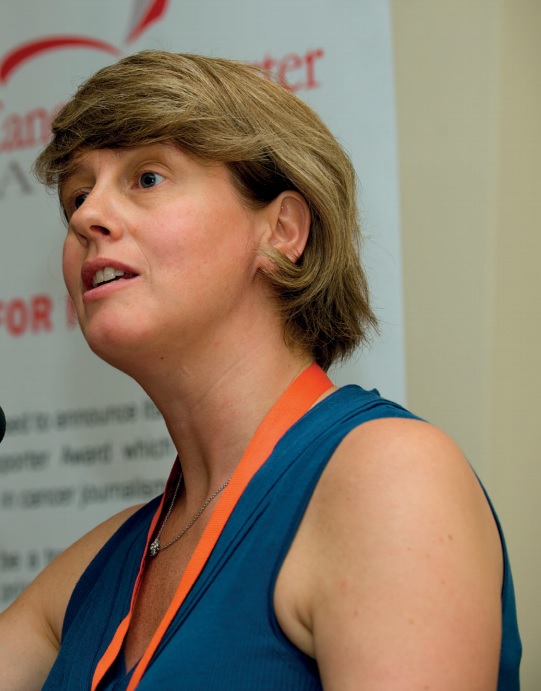
And certainly, she says, Cancer World has helped promote and shape the agenda on improving access to quality care.
“We’ve always harped on about the importance of quality and audit and the need to measure performance in cancer care. That was a message no one wanted to hear or was interested in 15–20 years ago. Now it’s become part of the vocabulary. It’s not acceptable anymore just to say we provide a good service; you have to be able to show it.
“We’ve always harped on about the importance of quality and audit and the need to measure performance”
“If you look at what’s happened in breast cancer, that’s now starting to happen in other disease areas, where efforts are being made to define not only clinical guidelines, which show how a disease should be treated, but also looking at where they should be treated – the whole issue around specialist units.
“We’re seeing much more emphasis on networks and centres of excellence and much more promotion of the message that people have the right to be treated by competent health professionals, and services need to be organised to facilitate that process.
“Cancer World pushed this service agenda – saving lives in cancer – and looked at it in its broadest aspect, and also asked the questions about how we can improve patients’ quality of life, how we can ensure good deaths.”
And there are new challenges. Redmond singles out the projected shortfall in Europe of up to two million clinical and healthcare professionals and long-term care staff by 2020. Who will diagnose, treat and care for Europe’s burgeoning population of cancer patients and survivors, many of them frail and suffering other chronic conditions? she asks.
“Cancer is not going away and there are new issues emerging all the time. There has to be some platform for the community to discuss these issues and arrive at some conclusions about how it takes action. Again I’m talking about the broadest community. The cancer community will always have to take action to improve the status quo.”
The challenge of bringing new voices to address these upcoming issues now falls on Alberto Costa, who will be retiring from his post as ESO Scientific Director in January 2016 to give more time to his new role as Cancer World editor. Costa is keen to build on the magazine’s reputation and success by expanding the reach of both its print and online edition and launching a Russian language edition.
Redmond will not be walking away from either patients or the cancer community. “I have been serving patients since I started out in nursing in 1980. And I have served them in different ways, as an educator of nurses, as an advocate, as an editor of Cancer World, but always asking the question: how can we make a difference to the lives of individual patients? Now I’m going to do that by helping organisations that serve patients, working with non-profit organisations to help them become more effective and sustainable.”
If that sounds like a modest ambition for a woman who has presided over Cancer World for 11 years, don’t be fooled. Ensuring that the people who have the power to change things listen and act in the best interests of patients will require effective advocacy by organisations serving patients. They will stand a much better chance now they have Che Guevara with a soft Irish lilt on their side.
Thoughtful and provocative
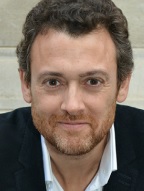
Cancer World is one of the best forums for intelligent conversation about cancer in all its guises and complexity. It explained, argued and led the questioning of major policy issues long before this became in vogue. And it did this in a way that was neither dumb, nor patronising, nor so complex that it was impossible to understand. Kathy has grown Cancer World into a thoughtful and provocative title, a place you have to go if you really want to understand the people, politics and policy of cancer.
A forum for battlers and sufferers
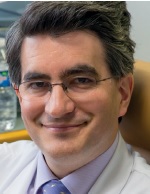
Cancer World has allowed the cancer community to be exposed to unique aspects of this troubling disease. It has created a forum where the human beings that are either the battlers or the sufferers of this disease can truly express their feelings and individual trajectories. This creates a richness, because it highlights the field with perspectives that go beyond science and medicine.
A link between topics and the cancer community
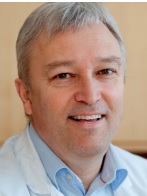
Cancer World became a unique magazine for the cancer community, as not only does it focus on important cancer topics, but Kathy Redmond has managed to create a link between the cancer topics and the cancer community. Each new issue adds to my understanding of how different professionals from different countries in Europe approach all the aspects of cancer care. It becomes so much more interesting when there is a person behind each story.
Close to patients’ needs and expectations
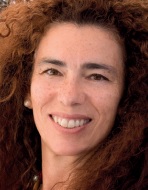
Kathy made Cancer World a truly multidisciplinary magazine, which brings us news on who is making a difference, doing what and where, including from the less-visible parts of the world of cancer. I am particularly grateful that she gave visibility to psycho-oncology and psychosocial care. Being a nurse by profession placed her in a privileged position, close to the patients’ needs and expectations, focusing on the treatment of the disease but also on caring for the whole person and the human side of cancer. Her wit also did a good service to the magazine, and us all, in making it exciting to read, with a slightly provocative attitude, as it should have.
The real life stuff
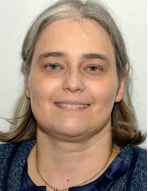
Thanks to Kathy’s leadership, Cancer World now occupies a unique space. It touches so many critical issues in the field, looking not just at the scientific aspects, but at advocacy, policy, the real life stuff that goes on. I’ve learnt important lessons, for instance from the story of the woman who was caught between the two worlds of traditional‒– Western – medicine, and so-called complementary or alternative therapy. I learned about the need to talk –‒ the two worlds must speak or the patient gets lost between them. And, unlike dense scientific journals, Cancer World is a joy to read.
Patients included as partners
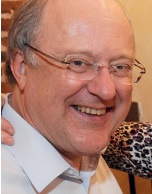
Being ‘multidisciplinary’ is a widely used concept, but what Kathy achieved with Cancer World was including the patient voice, and doing so in a way that placed patients alongside the professionals, not just as equal voices but as partners in the development of cancer care. Finding a top professional like Kathy with a deep intuitive understanding of patients was very refreshing for me.
A unique tool for global cancer control
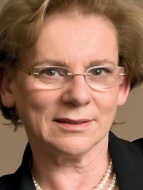
Immediate Past-President of the Union for International Cancer Control (UICC) and Medical Director of the Princess Margaret Cancer Centre at the University Health Network in Toronto
Cancer World has a mixture of a news, science, advocacy and social responsibility agenda, and fills a need by integrating all aspects of cancer. Its multiprofessional, multidisciplinary, and global focus and promotion of integration of clinical practice, academia, and public health make Cancer World a unique tool for global cancer control. Kathy is a driving force behind it. She is able to connect with ordinary patients, clinicians, and researchers and hold her own as a global leader, while working for instance on the World Cancer Declaration for UICC and launching and promoting the World Oncology Forum.
I consider her as a ‘global cancer treasure’ and I am quite jealous that Europe owns her.





